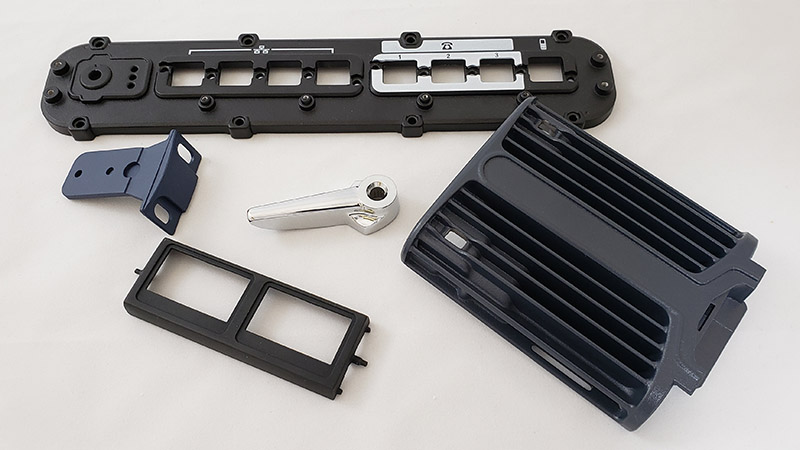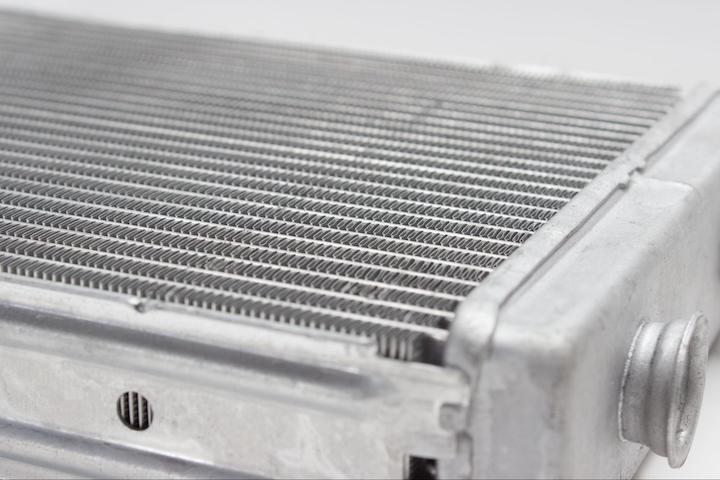What makes a Casting Foundry an integral partner in metal fabrication
Recognizing the Manufacturing Refine and Upkeep Practices for Light Weight Aluminum Shop Products
The production procedure for light weight aluminum shop items is detailed and needs a detailed understanding of multiple phases. From the melting of aluminum at high temperatures to various casting methods, each step plays a crucial duty. In addition, upkeep methods guarantee equipment remains reliable and items are devoid of defects. Nevertheless, the intricacies of these processes and their influence on item quality raise essential concerns regarding finest methods and innovative methods in the sector.
Overview of Aluminum Factory Products
Light weight aluminum factory products are crucial parts in various sectors, using a blend of light-weight toughness and rust resistance. These products are generally utilized in fields such as vehicle, aerospace, and building, where sturdiness and efficiency are vital. Aluminum's reduced thickness makes it an ideal product for applications calling for lowered weight without sacrificing architectural integrity. The convenience of aluminum enables for the production of complicated geometries, accommodating diverse design needs.
Light weight aluminum foundry products can be tailored with different alloys to boost specific residential properties, such as boosted thermal conductivity or raised solidity. Their resistance to oxidation and deterioration guarantees longevity, making them suitable for both outdoor and indoor applications. The combination of these qualities adds to the expanding choice for light weight aluminum in modern production. As markets seek to enhance performance and sustainability, aluminum shop items remain to play a crucial duty in fulfilling these needs.
Melting Refine: Changing Aluminum
The melting process is a basic action in the production of aluminum shop items, as it transforms strong light weight aluminum into a molten state ideal for spreading. This process normally happens in a furnace, where scrap light weight aluminum or ingots are heated up to temperatures around 660 levels Celsius. The option of furnace-- be it electrical, gas, or induction-- influences the effectiveness and expense of melting.
During melting, careful consideration is provided to the removal of contaminations, such as oxides and other pollutants, which can detrimentally affect the high quality of the end product. Fluxes may be included in aid in this filtration procedure, enhancing the fluidness of the molten steel.
Furthermore, temperature level control is important to assure uniformity and protect against overheating, which can result in oxidation. The melting process not just prepares aluminum for spreading but likewise plays a considerable function in identifying the integrity and homes of the last shop items.
Casting Methods in Aluminum Factory
Numerous spreading methods are employed in light weight aluminum factories to create high-grade elements, each matched to various applications and specs. Amongst the most frequently used techniques are sand casting, die casting, and investment spreading. Sand spreading makes use of a mix of sand and binder to create molds, permitting large components and intricate shapes (Aluminum Casting). Pass away casting, characterized by the high-pressure shot of molten light weight aluminum into steel molds, generates exact and repeatable components, perfect for automation. Investment casting, or lost-wax casting, includes producing a wax design that is coated in a ceramic shell, making it possible for elaborate designs and great details. Each technique has its advantages; sand spreading is cost-efficient for low-volume manufacturing, while die spreading provides performance for high-volume runs. Investment casting is preferred for parts calling for remarkable accuracy and surface finish. Choosing the suitable strategy depends on variables such as production volume, part intricacy, and product properties
Finishing Processes for Aluminum Components
After casting techniques have shaped the aluminum components, completing processes play a considerable duty in boosting their capability and visual allure. These procedures typically include machining, surface treatment, and finishing applications. Machining includes accurate removal of material to achieve preferred dimensions and surface high quality. This is crucial for making certain that components fit perfectly into their intended applications.
Surface area therapies, such visit the site as anodizing and polishing, are employed to boost deterioration resistance and boost visual attributes. aluminum casting company. Anodizing, in particular, gives a safety oxide layer, making the aluminum more aesthetically attractive and durable

Upkeep Practices for Longevity
Carrying out normal upkeep techniques is essential for making sure the long life of light weight aluminum shop pop over to these guys products. Regular examinations should be performed to recognize damage, as very early detection can avoid costly repair work and prolong the life expectancy of parts. Cleansing tools and equipment routinely reduces the danger of contamination, which can adversely impact item top quality. Lubrication of moving parts is likewise essential, as it decreases rubbing and wear, enhancing functional performance.
Additionally, the implementation of a preventative upkeep schedule assists in methodically resolving prospective concerns before they rise (Casting Foundry). This includes monitoring for leaks, making certain appropriate placement, and adjusting equipment. Personnel training on proper handling and maintenance strategies promotes a culture of care, which is critical for maintaining item stability. Finally, recording maintenance tasks offers useful understandings into efficiency trends, enabling for educated decision-making concerning future upkeep techniques
Quality Assurance and Testing in Light Weight Aluminum Shop Production
Quality control and screening are paramount in aluminum foundry manufacturing, as they assure that end products meet specified standards and client expectations. This procedure starts with raw product examination, ensuring that aluminum alloys adhere to needed make-ups. Throughout the production cycle, in-process evaluations are carried out to monitor specifications like stress, material, and temperature level circulation.
As soon as spreading is total, numerous examinations-- such as dimensional checks, visual assessments, and non-destructive testing-- are carried out to identify any issues. Mechanical properties, consisting of tensile toughness and firmness, are evaluated through standard screening approaches.
Adherence to sector requirements, such as ISO and ASTM, is crucial for making sure product top quality. Statistical procedure control strategies are usually utilized to evaluate manufacturing data and help with continuous enhancement. By applying rigorous Click Here quality assurance measures, aluminum shops can enhance item reliability and decrease waste, ultimately causing greater customer contentment and operational efficiency.
Often Asked Concerns
What Are the Ecological Impacts of Aluminum Factory Operations?
Aluminum factory procedures can cause significant ecological effects, including air contamination from emissions, water contamination from waste discharge, and energy consumption adding to greenhouse gas discharges, inevitably influencing neighborhood environments and community health.
Exactly How Do Aluminum Costs Influence Shop Production Choices?
Light weight aluminum costs significantly affect shop production decisions; higher rates might cause lower outcome or raised performance actions, while reduced costs can motivate enhanced production and investment in new technologies to enhance competitiveness and profitability.
What Precaution Are Crucial in Light Weight Aluminum Foundries?
Necessary precaution in aluminum foundries consist of protective equipment, correct ventilation to reduce breathing of fumes, routine equipment upkeep, training on emergency situation procedures, and adherence to safety methods to stop accidents and injuries amongst employees.
Can Aluminum Be Recycled, and Just How Is It Processed?
Aluminum can without a doubt be recycled. The procedure involves collection, melting, and reforming the product into brand-new products, significantly reducing energy intake and environmental influence compared to key aluminum production while maintaining material high quality.
What Prevail Flaws in Aluminum Casting and Their Reasons?

The production process for aluminum factory products is intricate and requires a complete understanding of multiple stages. Light weight aluminum factory products are essential components in numerous markets, providing a mix of light-weight strength and deterioration resistance. The melting process is a fundamental step in the manufacturing of aluminum shop items, as it changes solid light weight aluminum into a liquified state appropriate for casting. Applying routine upkeep methods is vital for guaranteeing the longevity of light weight aluminum foundry products. Quality control and screening are vital in aluminum factory production, as they assure that final products fulfill specified requirements and consumer expectations.